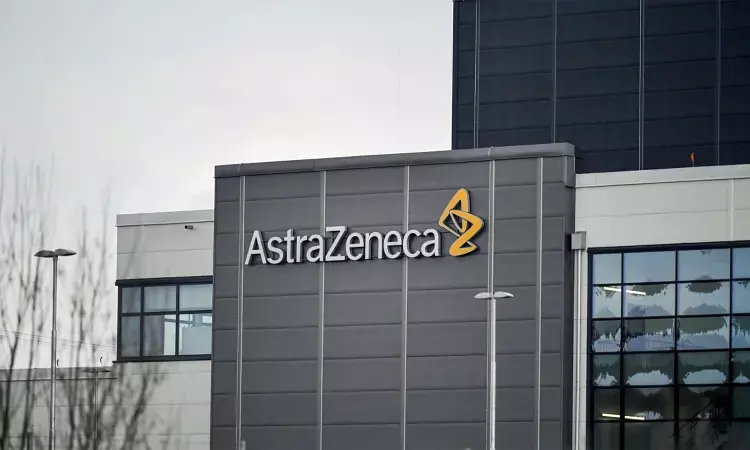- Home
- Medical news & Guidelines
- Anesthesiology
- Cardiology and CTVS
- Critical Care
- Dentistry
- Dermatology
- Diabetes and Endocrinology
- ENT
- Gastroenterology
- Medicine
- Nephrology
- Neurology
- Obstretics-Gynaecology
- Oncology
- Ophthalmology
- Orthopaedics
- Pediatrics-Neonatology
- Psychiatry
- Pulmonology
- Radiology
- Surgery
- Urology
- Laboratory Medicine
- Diet
- Nursing
- Paramedical
- Physiotherapy
- Health news
- Fact Check
- Bone Health Fact Check
- Brain Health Fact Check
- Cancer Related Fact Check
- Child Care Fact Check
- Dental and oral health fact check
- Diabetes and metabolic health fact check
- Diet and Nutrition Fact Check
- Eye and ENT Care Fact Check
- Fitness fact check
- Gut health fact check
- Heart health fact check
- Kidney health fact check
- Medical education fact check
- Men's health fact check
- Respiratory fact check
- Skin and hair care fact check
- Vaccine and Immunization fact check
- Women's health fact check
- AYUSH
- State News
- Andaman and Nicobar Islands
- Andhra Pradesh
- Arunachal Pradesh
- Assam
- Bihar
- Chandigarh
- Chattisgarh
- Dadra and Nagar Haveli
- Daman and Diu
- Delhi
- Goa
- Gujarat
- Haryana
- Himachal Pradesh
- Jammu & Kashmir
- Jharkhand
- Karnataka
- Kerala
- Ladakh
- Lakshadweep
- Madhya Pradesh
- Maharashtra
- Manipur
- Meghalaya
- Mizoram
- Nagaland
- Odisha
- Puducherry
- Punjab
- Rajasthan
- Sikkim
- Tamil Nadu
- Telangana
- Tripura
- Uttar Pradesh
- Uttrakhand
- West Bengal
- Medical Education
- Industry
AstraZeneca's antibody shot 83% effective at preventing Covid

London: A single shot of an antibody treatment against Covid-19 developed by UK drug major AstraZeneca is 83 per cent capable to reduce the risk of the infectious disease compared to placebo, according to new clinical trial results.
The antibody treatment, known as AZD7442, has shown to be highly effective at preventing Covid-19 in people who may not respond well to vaccines, the company said in a statement.
About 2 per cent of the global population is considered at increased risk of an inadequate response to a Covid-19 vaccine. This includes people with blood cancers or other cancers being treated with chemotherapy, patients on dialysis, those taking medications after an organ transplant or who are taking immunosuppressive drugs for conditions including multiple sclerosis and rheumatoid arthritis.
"These compelling results give me confidence that this long-acting antibody combination can provide my vulnerable patients with the long-lasting protection they urgently need to finally return to their everyday lives," said Hugh Montgomery, Professor of Intensive Care Medicine at the University College London, and AZD7442 principal investigator, in the statement.
"Importantly, six months of protection was maintained despite the surge of the Delta variant among these high-risk participants who may not respond adequately to vaccination," Montgomery added.
The phase three clinical trial was conducted across 87 sites in five countries: the US, the UK, Spain, Belgium and France. A total of 5,197 people took part, with 3,460 receiving 300 milligrams of AZD7442 and 1,737 being given a saline placebo.
The six-month assessment included data from 4,991 of the participants, who will continue to be assessed for 15 months.
In a separate trial, patients with mild-to-moderate Covid-19 had their risk of developing severe disease reduced by 88 per cent, when one dose of AZD7442 was given within three days of developing symptoms.A
Half of this trials 903 participants were given 600 mg of AZD7442, while the other half were given a placebo.
Ninety per cent of those included in the second study were considered to be at high risk of developing severe Covid-19 if they contracted the virus. While the trials' full results have not yet been peer-reviewed, they are set to be submitted for publication in a peer-reviewed medical journal, the company said.
However, the results of both trials showed that AZD7442 was "generally well tolerated," it added.
"AZD7442 is the only long-acting antibody treatment that has phase three data to demonstrate efficacy in both preventing and treating Covid-19 with one dose," said Mene Pangalos, executive vice president of biopharmaceuticals R&D at AstraZeneca.
He added that the company will proceed with regulatory filings around the world "as quickly as possible.
In October, AstraZeneca announced it had asked the US Food and Drug Administration for emergency use authorisation for AZD7442 as a preventative treatment. It has not yet been granted.
The pharmaceutical giant has agreed to supply the US government with 700,000 doses of its antibody treatment if that request is granted.
Other companies developing antibody treatments include the US-based Regeneron's monoclonal antibodies, casirivimab and imdevimab, and Eli Lilly's drug bamlanivimab. These have been granted emergency use authorisation by the US Food and Drug Administration and in other countries. UK's GlaxoSmithKline and South Korea's Celltrion are conducting Phase II or III trials that are underway or forthcoming.
China is also set to approve the country's first monoclonal antibody therapy, co-developed by Tsinghua University, the Third People's Hospital of Shenzhen and Brii Biosciences, by December.
Read also: AstraZeneca begins to earn mild profit from Covid-19 vaccine
Medical Dialogues Bureau consists of a team of passionate medical/scientific writers, led by doctors and healthcare researchers. Our team efforts to bring you updated and timely news about the important happenings of the medical and healthcare sector. Our editorial team can be reached at editorial@medicaldialogues.in.


